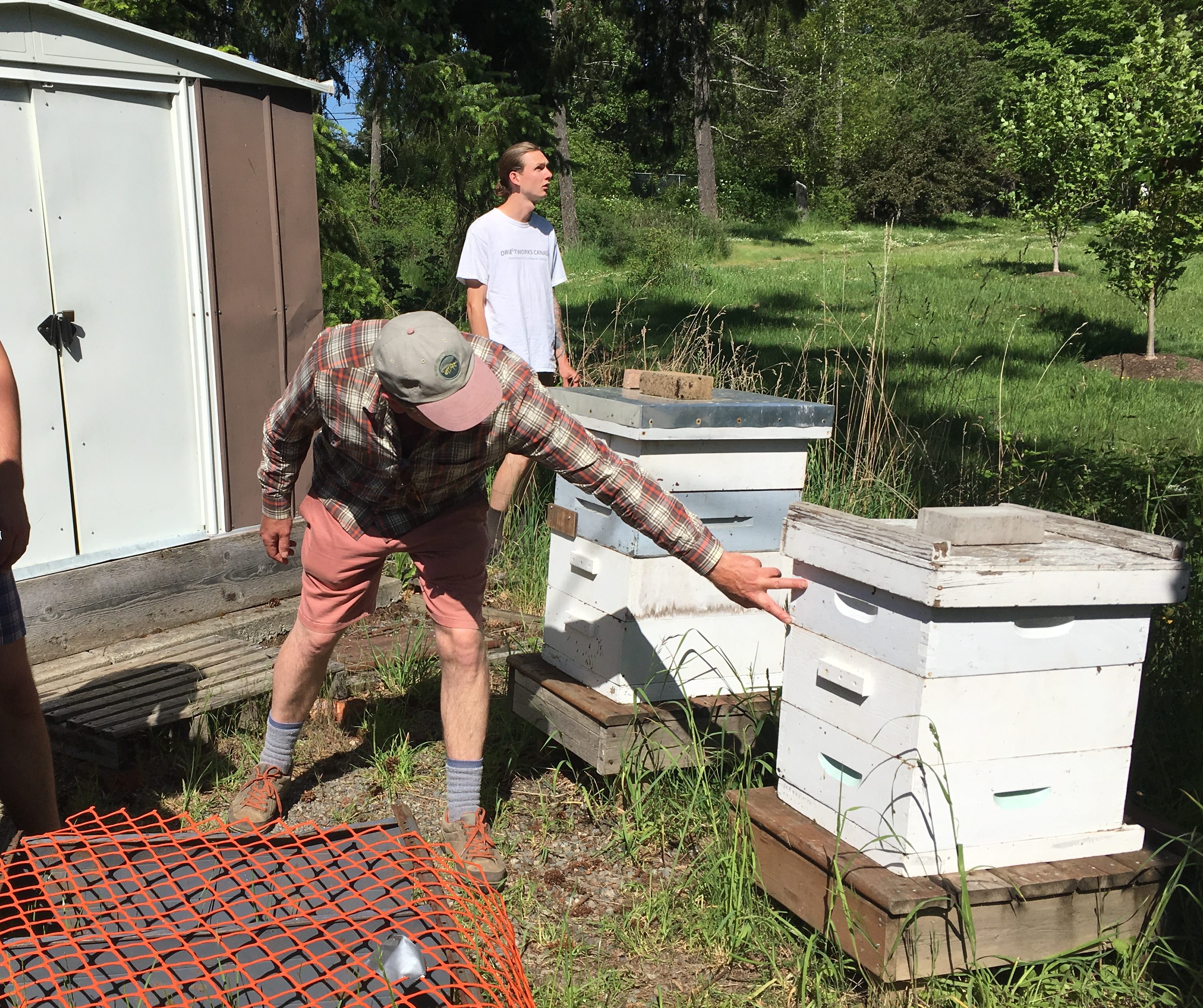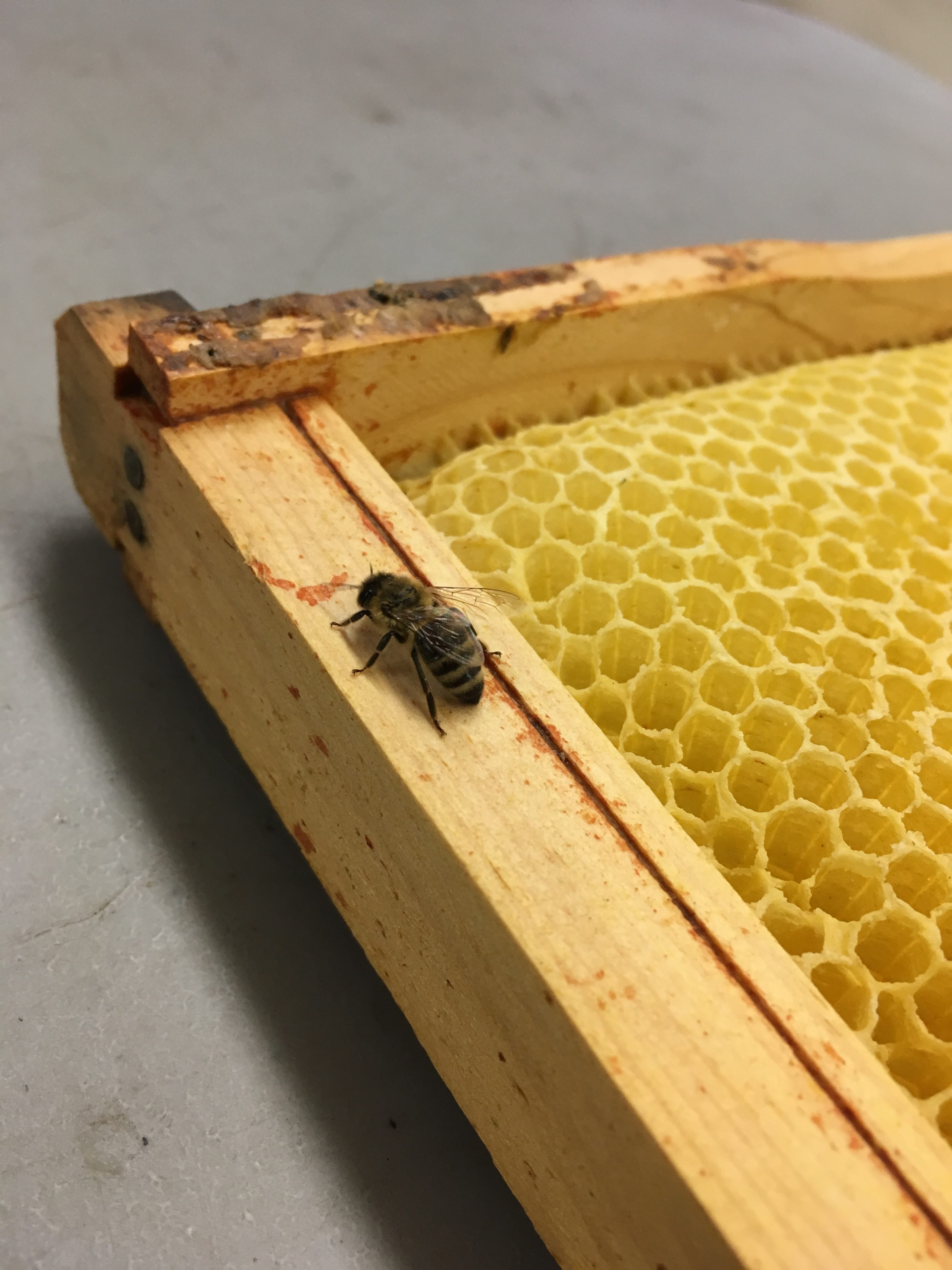Five Senses to Beekeeping
We first met Gordon Mackay earlier in the season for some lessons on fruit tree pruning, and on May 14 he surprised us with another visit to talk about beekeeping, also known as apiculture.
 As a kid I was terrified of bees; something about the buzzing sound sent shivers up my spine. My first sting wasn't even until much later in life (unfortunately in the armpit), so it wasn't initially about a fear of pain. Perhaps it was that I didn't understand them, I always felt that they were just out to get me, but they can be quite gentle creatures if you treat them with respect. Now I know how incredibly important they are. Without them and other pollinators, most plant life and therefore all other living things would not be possible. We need to be stewards of pollinators because their populations are in decline. This is due to a number of stressors such as: exposure to pesticides, habitat destruction, and loss of plant diversity to name a few.
As a kid I was terrified of bees; something about the buzzing sound sent shivers up my spine. My first sting wasn't even until much later in life (unfortunately in the armpit), so it wasn't initially about a fear of pain. Perhaps it was that I didn't understand them, I always felt that they were just out to get me, but they can be quite gentle creatures if you treat them with respect. Now I know how incredibly important they are. Without them and other pollinators, most plant life and therefore all other living things would not be possible. We need to be stewards of pollinators because their populations are in decline. This is due to a number of stressors such as: exposure to pesticides, habitat destruction, and loss of plant diversity to name a few.
One way to support pollinators is to start your own beehive. After almost 20 years of beekeeping, Gordon still speaks of it as not only a rewarding experience, but one that gets you to really exercise your sensual acuity. While I may not jump right into apiculture myself, I did learn some great things that certainly may become future avenues to explore…
LOOK- You need an appropriate amount of forage in the surrounding area to host a hive. Bees will need food within 5 miles of their hive, the closer the better since it is less work for them! As you watch bees you will soon realize their great diversity. In BC, there is about 450 native species. But if you don't want to take care of a hive yourself, you can work on cultivating a garden that is pollinator friendly with a diverse array of plants and accessible water (the birds can drink too!).
LISTEN- Stay attuned to what your bees sound like. When the bees are about to swarm, either due to lack of space in the hive or because they have lost a queen, you can hear their roar!
SMELL - Humans can smell the bee pheromone that triggers an “alarm signal”. Be wary if you get a whiff of bananas when handling your hive. Smoking them before handling their hive helps to suppress their ability to sense this pheromone.
TASTE - Both you and your bees like sugar. Not only is honey delicious, it is also highly nutritious and anti-bacterial. One tip to encourage the bees to groom each other is to lightly sprinkle them with icing sugar. The varroa mite lives parasitically on the honey bee. A bad infestation can eventually kill the colony. So as the bees groom the sugar off themselves, some mites are also removed.
TOUCH - To start it is probably best to get yourself a suit and gloves, but eventually you get to know your bees and with slow mindful movements you can quite successfully work around bees without gloves. The directness of this approach brings a special kind of focus and sensitivity to your bee care which will ultimately benefit your practice.
If you want to start your own hive try this link at Capitol Region Beekeepers or you can also get involved with local beekeeping communities and find yourself a mentor!
Thank you to Gordon for a great intro lecture!


